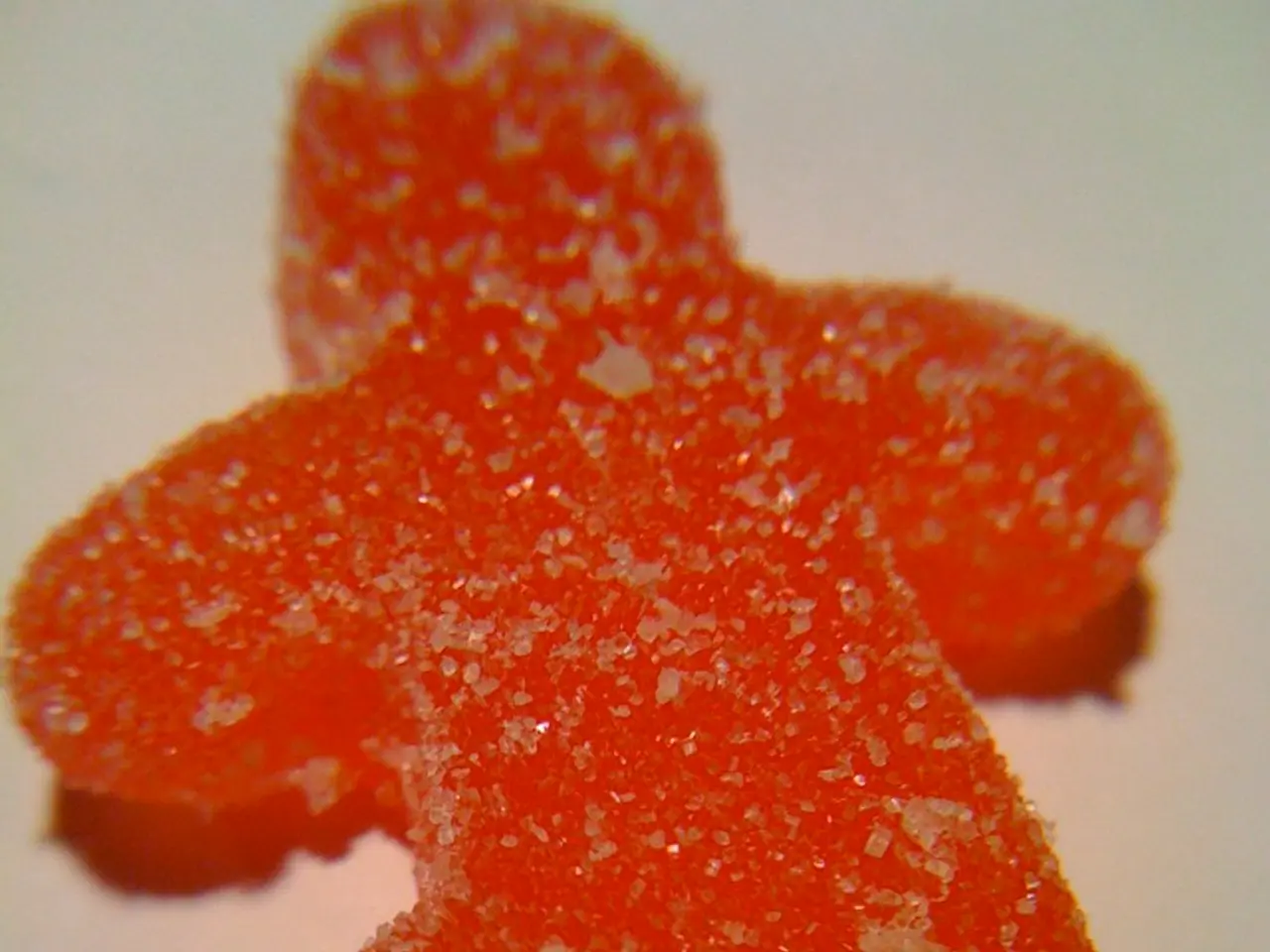Allulose: An Overview of Its Nutritional Advantages and Potential Drawbacks
In the realm of sugar substitutes, allulose has been gaining attention for its potential benefits, particularly for those managing their weight and diabetes. This innovative sweetener, which resembles fructose, has been found to have minimal impact on blood sugar and insulin levels, making it a promising option for individuals seeking to control their glucose levels.
One of the key advantages of allulose is its role in weight control. Being low in calories, it may help reduce body weight by decreasing appetite and food intake. Studies have shown that allulose can aid in weight loss by promoting fat loss and improving exercise capacity, similar to the effects of physical activity [2].
For individuals with diabetes, allulose offers significant benefits. Unlike regular sugar, allulose is excreted unmetabolized, meaning it does not raise blood glucose or insulin levels. This makes it particularly helpful for people with diabetes [2][4]. Allulose appears to improve glucose control by enhancing pancreatic beta cell function and liver glucokinase activity, which helps manage blood sugar levels effectively [2].
Allulose may also counteract insulin resistance induced by fructose consumption and reduce inflammatory responses, which are important factors in metabolic health and diabetes [2]. Unlike some artificial sweeteners that may disrupt the gut microbiome and increase insulin resistance and appetite long-term, allulose seems to have a more favorable profile without these adverse effects reported [1].
The U.S. Food and Drug Administration (FDA) has recognized allulose as safe, and it can be found in a variety of foods such as bakery products, non-alcoholic beverages, cereals, chewing gum, and frozen dairy desserts [4]. However, as with all sweeteners, moderation and ongoing research into long-term effects remain important.
The body absorbs allulose but does not metabolize it into glucose. Consuming large quantities of allulose may cause abdominal discomfort, but this side effect is not toxic and usually temporary [1]. Allulose is available in a granulated form and looks like everyday sugar.
A human study found that consuming a high dose allulose beverage resulted in significant decreases in body fat percentage, body fat mass, and body mass index (BMI) compared with a placebo [2]. The results of this study suggest that replacing sugar with allulose may offer potential benefits for those who are overweight or obese. However, further studies are needed to confirm these results in a more diverse study population.
In summary, allulose is considered a promising sugar alternative for weight loss and diabetes control due to its minimal impact on blood sugar and insulin, potential to reduce fat mass, and improvement of insulin sensitivity. While further research is necessary to fully understand its long-term safety and effects, allulose offers a potentially safer and more beneficial option compared to many artificial sweeteners that might have unfavorable long-term metabolic effects [1][2][4].
- Allulose, the innovative sweetener resembling fructose, may aid in weight loss by decreasing appetite and food intake, promoting fat loss, and improving exercise capacity, similar to the effects of physical activity.
- For individuals with diabetes, allulose offers significant benefits as it does not raise blood glucose or insulin levels, making it a suitable option for those managing their glucose levels.
- Allulose appears to improve glucose control by enhancing pancreatic beta cell function and liver glucokinase activity, which helps manage blood sugar levels effectively.
- Unlike some artificial sweeteners, allulose seems to have a more favorable profile, as it does not disrupt the gut microbiome and increase insulin resistance and appetite long-term.
- The U.S. Food and Drug Administration (FDA) has recognized allulose as safe, and it can be found in a variety of health-and-wellness products like bakery products, beverages, and frozen dairy desserts.
- Consuming large quantities of allulose may cause temporary abdominal discomfort, but this side effect is not toxic. While ongoing research is important to fully understand its long-term safety and effects, allulose offers a potentially safer and more beneficial option compared to many artificial sweeteners that might have unfavorable long-term metabolic effects.




